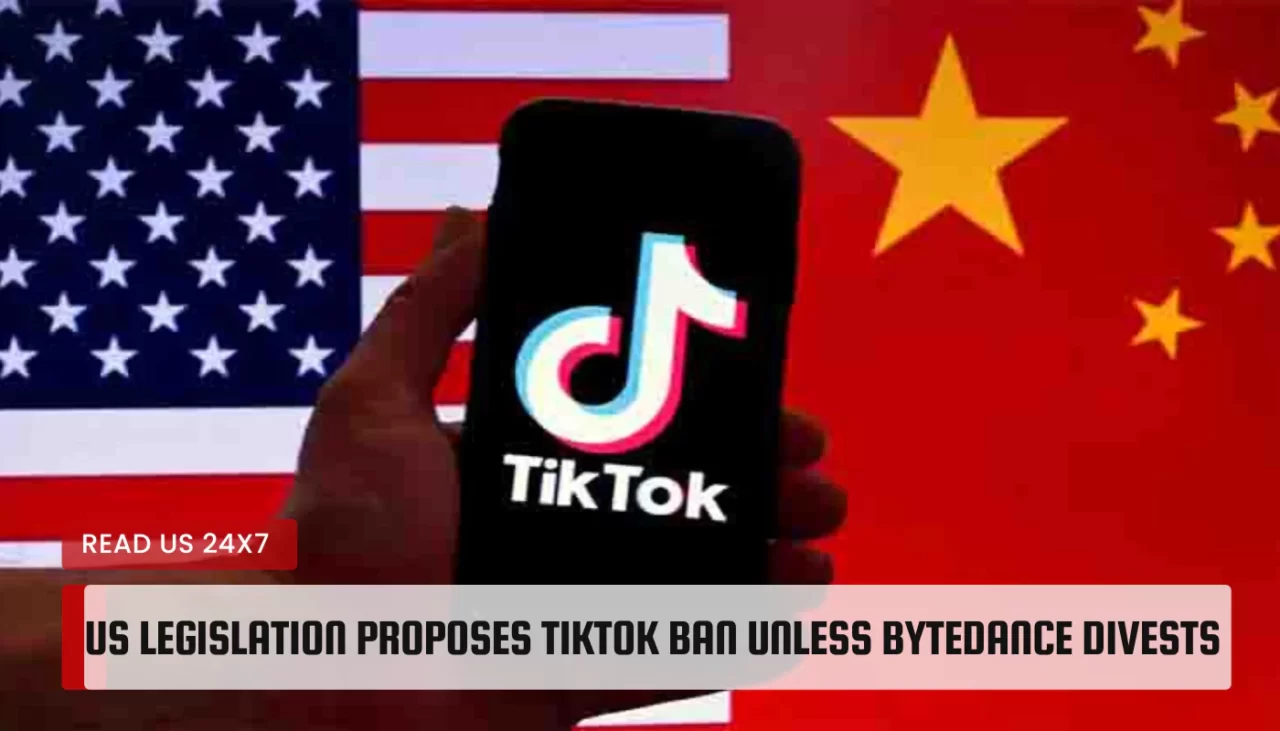Yes, you read that right. TikTok, the popular short video app with over 170 million users in the US, could soon be banned in the country unless its Chinese parent company ByteDance sells it to a US entity. This is the latest development in the ongoing saga of TikTok’s fate in the US, which has been under scrutiny by lawmakers and regulators for its potential national security and privacy risks. In this article, we will explain why TikTok is facing more heat in Washington, what the proposed legislation entails and its impact, and how the public is responding to this situation.
Why is TikTok Facing More Heat in Washington?
Legislation Demanding ByteDance Divestiture
On March 6, 2024, a bipartisan group of US lawmakers introduced a bill titled the Protecting Americans from Foreign Adversary Controlled Applications Act. The bill aims to address the threat posed by applications like TikTok that are controlled by foreign adversaries, such as China. The bill would require ByteDance to divest TikTok within 165 days or face a comprehensive ban in the US. The bill also grants the president the authority to ban any other foreign-controlled app that poses a national security risk.
Growing National Security Concerns
The main reason behind the bill is the growing concern over TikTok’s ties to the Chinese Communist Party (CCP) and the possibility that the app could be used to collect, store, and share sensitive data of US users with the Chinese government. TikTok has repeatedly denied these allegations and claimed that it has firewalls in place to protect user data and systems. However, lawmakers are not convinced by TikTok’s assurances and point to the fact that ByteDance is subject to China’s national security laws, which could compel it to hand over data or censor content at the CCP’s request.
The Proposed Legislation and Its Impact
Ban on TikTok from App Stores
If the bill becomes law, TikTok would be banned from app stores and web hosting platforms in the US unless ByteDance divests it to a US entity within 165 days. This means that existing users would not be able to update the app or access new features, and new users would not be able to download the app. The ban would also affect TikTok’s advertising revenue and partnerships with US companies.
ByteDance’s 165 Day Deadline to Divest
The bill gives ByteDance a 165 day deadline to sell TikTok to a US entity or face a ban. This deadline is shorter than the previous one set by former President Trump, who issued an executive order in August 2020 demanding ByteDance to divest TikTok within 90 days. However, that order was blocked by federal courts and later revoked by President Biden, who launched a new investigation into foreign-controlled apps in June 2021. ByteDance has been in talks with several potential buyers, such as Oracle, Walmart, and Microsoft, but no deal has been finalized yet.
Potential Consequences for Not Divesting
If ByteDance fails to divest TikTok within the deadline, it could face severe consequences, such as fines, sanctions, and legal actions. The bill also authorizes the president to impose additional penalties on ByteDance and any other foreign entity that violates the law. Moreover, ByteDance could lose its access to the US market, which is one of TikTok’s largest and most lucrative markets. According to Sensor Tower, TikTok generated $1.2 billion in revenue from the US in 2023, accounting for 28% of its global revenue.
Public Response and Concerns
Limited Time Offer
The bill has sparked mixed reactions from the public, especially TikTok users and creators, who are worried about losing their favorite app and platform. Some users have expressed their frustration and disappointment with the bill, while others have urged ByteDance to sell TikTok as soon as possible. Some users have also taken advantage of the situation and promoted their alternative accounts on other social media platforms, such as Instagram, YouTube, and Twitter. Some users have even joked that they would move to Canada or Mexico to keep using TikTok.
Privacy and Security Concerns
While some users are loyal to TikTok and do not want to see it banned, others are concerned about their privacy and security and support the bill. These users believe that TikTok poses a real threat to their personal data and could expose them to cyberattacks, identity theft, or surveillance by the Chinese government. These users also argue that TikTok does not have adequate safeguards to protect user data and systems, and that it censors content that is critical of the CCP or supports human rights causes, such as the Hong Kong protests or the Uyghur genocide.
Potential Job Losses
Another concern that the bill raises is the potential impact on the US economy and employment. TikTok has created thousands of jobs in the US, both directly and indirectly, through its offices, partnerships, and influencer programs. According to TikTok, it employs over 1,500 people in the US and plans to hire 10,000 more in the next three years. TikTok also claims that it supports over 5 million small businesses in the US that rely on the app to reach customers and grow their revenue. If TikTok is banned, these jobs and businesses could be at risk.
Conclusion
To sum up, TikTok is facing a possible ban in the US unless ByteDance divests it to a US entity within 165 days. This is the result of a bipartisan bill that aims to protect national security and privacy from foreign-controlled apps like TikTok. The bill has generated mixed responses from the public, who are either worried about losing their favorite app or concerned about their data and security. The bill also has significant implications for the US economy and employment, as TikTok has created and supported thousands of jobs and businesses in the country. The fate of TikTok in the US now depends on whether ByteDance can find a suitable buyer and complete the deal before the deadline.


